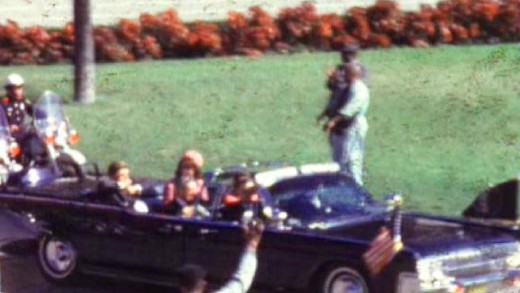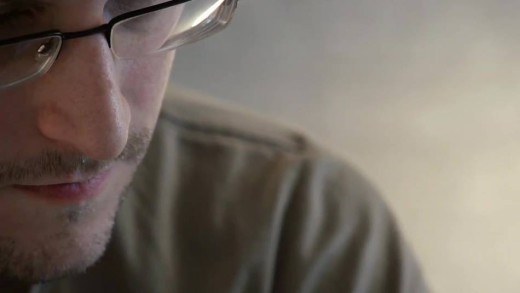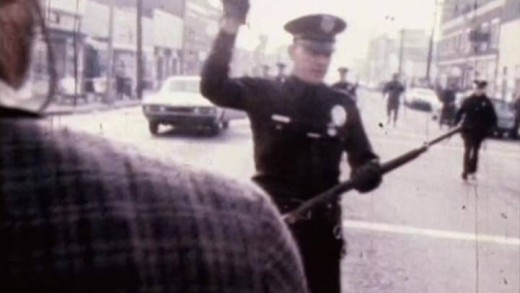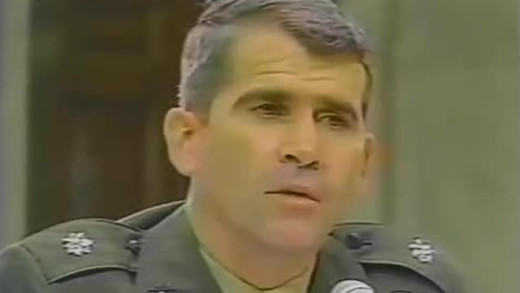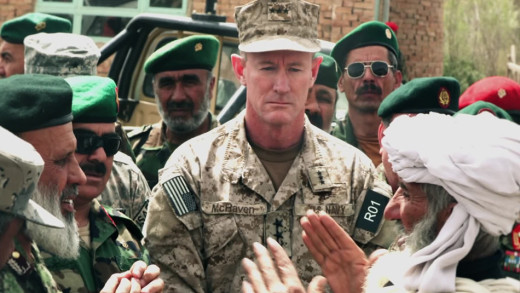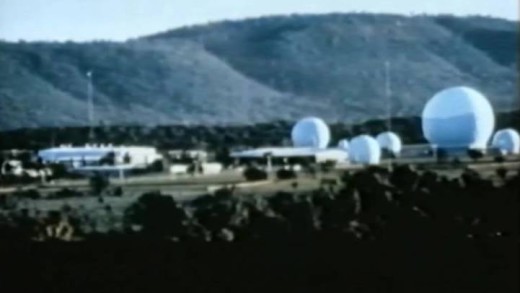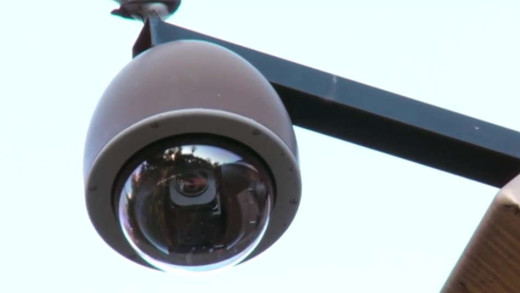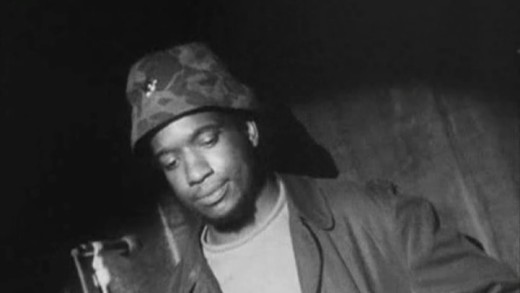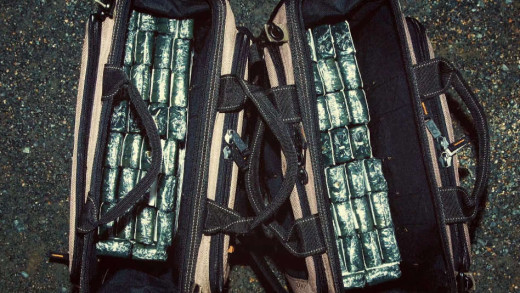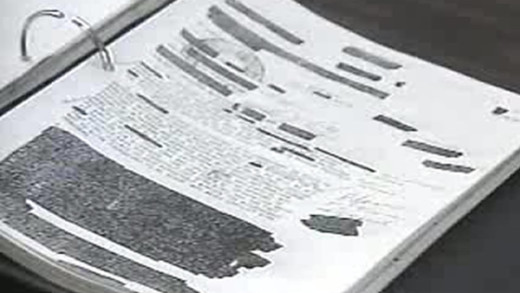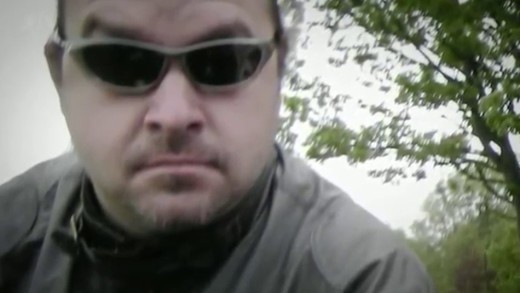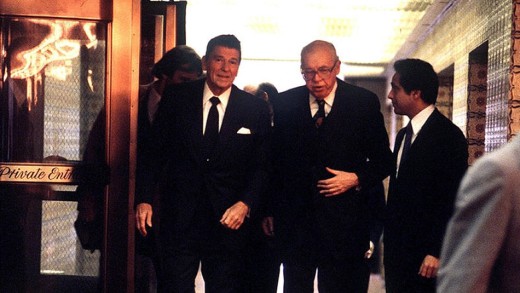(T)error is the story of a 62-year-old Theodore Shelby, a former Black Panther now turned informant for the FBI going under the name Saeed “Shariff” Torres. The film documents his work on an undercover sting operation that targets a Muslim American Khalifah Ali Al-Akili on weapons charges, as well as Tarik Shah, a professional jazz musician, accused of providing support to al-Qaeda, even though no actual terrorist contact ever took place. The cases are used as examples of preemptive prosecutions, and illuminate aspects of the surveillance state in the post-9/11 world of the United States.
In March 1971, eight ordinary citizens broke into an FBI office in Pennsylvania, took hundreds of secret documents out, and mailed them to newspapers across the country to share them with the public. The group, calling themselves The Citizens' Commission to Investigate the FBI, undertook the actions at a time where suspicions about systemic abuse and manipulation of social and political movements by intelligence agencies were running high in the context of the Vietnam war and 1960s counter-culture. In doing so, these citizens uncovered the FBI's vast and illegal regimes, leading to insights about mass surveillance, intimidation, entrapment, and the use of provocateurs and informers for manipulation, and sabotage. Much of this would later go on to be known as part of a covert program called COINTELPRO that was run directly by J. Edgar Hoover to destroy social change movements—a history that is imperative to understand in the context of today, where state repression of social change movements continues.
Using Oliver Stone's epic film "JFK" as a springboard, Beyond JFK: The Question of Conspiracy brings together extensive research around the assassination of John F Kennedy in 1963, to challenge serious flaws in the official narrative. Featuring interviews with Jim Garrison, the District Attorney who brought the conspiracy case of Clay Shaw in 1969, as well as interviews with his staff, Numa Bertel, Lou Ivon and Perry Russo; in addition to numerous reporters, eyewitnesses, archivists, and others, Beyond JFK is a cumulative look into the huge amounts of public research that went into the counter-narrative of the JFK assassination, forming the basis of the production of the JFK movie as a way of presenting the research to the public through pop-culture.
Citizenfour
In January 2013, film-maker Laura Poitras received an encrypted e-mail from a stranger who called himself Citizen Four. In it, he offered her inside information about illegal wiretapping practices of the NSA and other intelligence agencies. Poitras had already been working for several years on a film about mass surveillance programs in the United States, and so in June 2013, she went to Hong Kong with her camera for the first meeting with the stranger, who identified himself as Edward Snowden. She was met there by investigative journalist Glenn Greenwald and The Guardian intelligence reporter Ewen MacAskill. Several other meetings followed. Citizenfour is based on the recordings from these meetings. What follows is the largest confirmations of mass surveillance using official documents themselves, the world has never seen...
A secret illegal project from the 1950s, 60s and 70s called COINTELPRO, represents the state's strategy to prevent resistance movements and communities from achieving their ends of racial justice, social equality and human rights. The program was mandated by the United States' FBI, formally inscribing a conspiracy to destroy social movements, as well as mount institutionalised attacks against allies of such movements and other key organisations. Some of the goals were to disrupt, divide, and destroy movements, as well as instilling paranoia, manipulation by surveillance, imprisonment, and even outright murder of key figures of movements and other people. Many of the government's crimes are still unknown. Through interviews with activists who experienced these abuses first-hand, COINTELPRO 101 opens the door to understanding this history, with the intended audience being the generations that did not experience the social justice movements of the 60s and 70s; where illegal surveillance, disruption, and outright murder committed by the government was rampant and rapacious. This film stands to provide an educational introduction to a period of intense repression, to draw many relevant and important lessons for the present and the future of social justice.
Mark Kennedy was an undercover police officer who spent eight years as a infiltrator and informer on environmental movements and other protest groups throughout Europe. Confessions of an Undercover Cop accounts the actions of Kennedy from his perspective, which reveals an insight into the dark, twisted psychology of a police informant and the methods they use to destabilise movements and activists...
Counter-Intelligence is a 5 part series that explores in-depth, the vast, sprawling and secret National Security State that operates throughout the United States--and indeed the world. The series examines the foundations of the Military-Industrial-Intelligence Complex, charting through to the myriad consequences in today's world where secret intelligence organisations continue to hijack governments, manipulate elections and commit heinous crimes against humanity--all under the cloak of "National Security". In the wake of the continued revelations of the NSA PRISM program, this series is now more important than ever to provide a solid historical context to the workings of the rapacious and ever-expanding National Security State...
Cover Up -- Behind The Iran-Contra Affair is a thorough investigation into information suppressed during the Iran-Contra hearings in 1987 where it was found that senior officials in the United States government secretly facilitated the sale of arms to Iran. The film reveals a shadow government of former CIA operatives, drug smugglers, top US military personnel and others, revealing evidence of the history of CIA involvement in drug running from the Vietnam heroin era to the Central American cocaine epidemic -- raising serious questions about the so-called "war on drugs" and other government movements since the 1980s...
Cover-Up explores the investigative journalism career of Seymour Hersh, a Pulitzer Prize-winning journalist, exposing the United States' war crimes during the Vietnam War and the secret US bombing of Cambodia, the Watergate scandal, the CIA's program of domestic spying, and the torture and abuse of prisoners at Abu Ghraib during the war on terror and the invasion of Iraq.
Dirty Wars follows investigative reporter Jeremy Scahill into the hidden world of the United States' covert wars and assassination programmes—from Afghanistan to Yemen, Somalia, and beyond. What begins as a relatively commonplace report on the cover-up of a murderous US night raid in a remote corner of Afghanistan, quickly turns into a global investigation of the secretive and powerful Joint Special Operations Command (JSOC)—a top secret arm of the Military-Industrial-Intelligence Complex. As Scahill digs deeper into the activities of JSOC, he is compelled to report on the growing chilling underworld of covert operations carried out across the globe at the behest of the United States government: Targeted killings of American citizens; secret drone strikes; outsourcing American kill lists to warlords, private corporations and paramilitaries. The list goes on. Dirty Wars is a sobering investigation and personal journey into the most important human rights story of our time.
Drone
In the wake of the September 11th attacks, amongst the ravaging of war, the United States has been secretly deploying drones to carry out assassinations throughout the Middle East. The drones are increasingly piloted by the likes of young computer gamers groomed by screen culture and computer games of war, where in many cases, the Pentagon is directly involved in the creation of such games as recruitment tools, actively working to lure young people proficient with technology into the new era of the military-industrial-complex. Drone unravels this complex phenomenon while travelling to places such as Waziristan, where innocent civilians, including children and rescue workers are routinely secretly killed, where families and communities ravaged by the drone strikes search for understanding, accountability and adjustment to the daily horrors. The film also takes a look at the young people sitting behind the screens of the new war machines, half a world away, that actually pull the trigger, asking what kind of world is being built in the rise of seemingly endless and lucrative war driven by technological escalation.
In 1966, Australia made an agreement with the United States that allowed the establishment of a secret military base satellite tracking station, just south of Alice Springs in the Northern Territory. The facility is called Pine Gap and for more than forty years it has operated in a shroud of secrecy and been the target of much controversy. Home on The Range attempts to contextualise these issues by highlighting the history of the base and its origins, as well as the stories of controversy. Some of these include the Khemlani Affair and the sacking of the Whitlam government in 1975, the Christopher Boyce spy trial, the role of the Central Intelligence Agency and its former agent Victor Marchetti, as well as documenting the post-war culture of government secrecy, sprawling intelligence agencies and foreign affairs and policy. But Home on the Range does more than gesture toward such CIA interventions. It marshals a persuasive array of evidence linking the imminent expiry of leases on United States military and intelligence bases in Australia in 1975, to the CIA and Whitlam's sacking, posing direct questions about the nature of democracy in regions beholden to the United States.
For the past 15 years, the misnomer "War on Terror" has been used by the United States to justify everything from mass surveillance and spying on its own citizens, to the use of secret drone strikes to kill people without trial or sometimes even evidence. Governments have always applied surveillance to those they consider a political threat, but the scale of the clandestine PRISM programme, which collects the data of billions of innocent people all across the globe, is unprecedented. Likewise is the call for the journalists who published the documents revealing the PRISM programme to be prosecuted. In the wake of relations about sustained, systematic abuses of power, it is apparent that in many areas, the United States operates on spurious interpretations of law, often explained in confidential memos, hidden from the public. Other times, the law is disregarded entirely. So what does this mean for resistance? How can citizen rights be reconciled with a rogue state security apparatus?
In 1990, alarming evidence of NATO-sponsored terrorist attacks came to light. NATO’s secret "stay behind" armies that were set up across Western Europe after the Second World War were supposedly intended to help put together a resistance if the Soviet Union invaded. However, they went on to commit terrorist attacks against their own populations, so as to influence domestic politics. The forces still exist post-Cold War. This film is the shocking story of Operation Gladio--a tale of espionage, conspiracy and political violence carried out by the United States.
Project X is a short film taking viewers on an undercover journey based on formerly top-secret documents that show a partnership between the National Security Agency and telecommunications corporations such as AT&T and Verizon for mass surveillance and bulk data collection of voice and data. The documents reveal TITANPOINTE, the codename for a large windowless sky scraper in New York, where AT&T and other corporations house vast Internet switching equipment and data centres. The facility is also tied to a nearby FBI building, and its rooftop equipment to the SKIDROWE satellite surveillance system. These findings were possible because of documents released to the public by Edward Snowden and other brave whistleblowers.
The Murder of Fred Hampton is a film which began with the intention of documenting Fred Hampton and the Illinois Black Panther Party during 1971, but during the film's production, Hampton was murdered by the Chicago Police Department and FBI. The film project then quickly split into two parts: the portrait and biography of Fred Hampton, and an investigative report into his murder. The result chronicles important historical context. Hampton was a radical activist and deputy chairman of the national Black Panther Party, during the civil rights and black power movements in the United States. Hampton was killed as part of COINTELPRO—the illegal "counter-intelligence program" run by the FBI, aimed at destroying domestic political organisations through surveillance, infiltration, disruption, threats, violence and assassinations.
The Newburgh Sting exposes the FBI's nationwide practice of targeting Muslim communities by luring unsuspecting impoverished citizens into traps to commit acts of terrorism, and then selling their arrests to the public as major law enforcement coups. As told by the defendants, lawyers, local Imams and a former career FBI agent, The Newburgh Sting depicts how four men living at the margins of society were entrapped by an FBI informant and lured into a wild plot involving bombing a wealthy Riverdale synagogue, and shooting stinger missiles to take down a military supply plane. Their arrest was misleadingly portrayed to the public as a counter-terror victory.
The Panama Deception documents the invasion of Panama in December 1989—codenamed Operation 'Just Cause.' The film gives context to the events which led to the invasion, and explores the real impact on the ground and devastating aftermath—all contrary to the views portrayed by mainstream media and rhetoric espoused at the time by government officials in the Bush administration. News footage and media critics reveal the extent of media control and self censorship of the invasion, relevant to any news coverage today, particularly during times of war.
Peter Francis, a former undercover police spy turned conscientious whistleblower, breaks ranks by speaking to the media after becoming troubled by the unaccountable culture of secret police operations throughout the United Kingdom targeting peace activists for decades. Tactics included undercover police officers having sexual relationships with activists, even going as far as commonly having children with the women they were spying on. Undercover agents also often assumed the identities of dead children in order to have "solid cover stories." We also see how undercover police were asked to look for intelligence that could be used to discredit the family of murdered teenager Stephen Lawrence and their campaign. The Lawrence family both speak of their shock at hearing about that the police did this to them. This short investigation opens a flood of questions about the secret history of covert police operations, and indeed the future of them in the context of the sprawling surveillance state of today.
The Secret Government, as its title suggests, is essentially an investigation into the processes, plans, operations and persons responsible for systemic abuses of power at senior levels of the United States government during the 1980s. The film covers multiple covert operations and secret projects, but takes a particular focus on the Iran–Contra affair of 1986, where Ronald Regan secretly facilitated the illegal sale of arms to Iran—which was the subject of an arms embargo at the time—to support a right-wing terrorist group called "The Contras," and also make obscene profits from the sale of such weapons. Transported to the political happenings of today, The Secret Government is a call to remember history, and see that mass profits from weapons dealing running covert/secret wars were a reality then, and now, as well as to reveal just how far institutionalised propaganda and obfuscation works to conceal these home truths, still generations later.
Zero Days
Stuxnet is a malicious computer virus, first identified in 2010, that targets industrial computer systems and was responsible for causing substantial damage to Iran's nuclear program, as well as spreading across the world. The virus is believed by many experts to be a jointly built American-Israeli cyberweapon, although no organisation or state has officially admitted responsibility. Zero Days covers the phenomenon surrounding the Stuxnet computer virus and the development of the malware software known as "Olympic Games." It also examines the follow-up cyber-plan entitled 'Nitro Zeus,' showing how the United States has opened the Pandora's Box of cyberwarfare.


